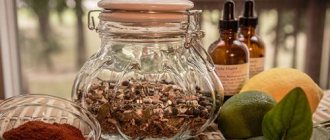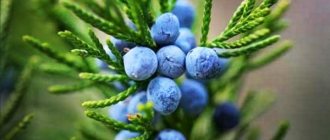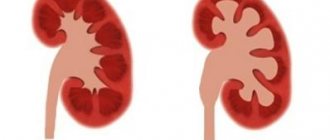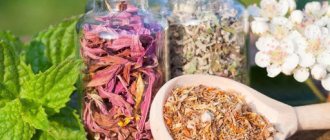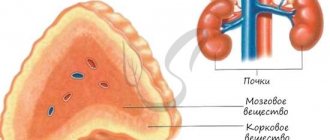Article on the topic
In facts and figures: per day, the kidneys filter and purify 1,700 liters of blood
At the same time, the kidneys are one of the most vulnerable organs. Wrong food, poor drinking water, medications - all this immediately affects their work. And an infection that occurs in any part of the body is carried to them by the bloodstream.
All this causes the development of diseases such as pyelonephritis, urolithiasis, and cystitis. Herbal medicine helps relieve the kidneys, restores normal kidney function so that they can efficiently perform all their functions.
For cleansing and healing
According to urologists, tap water with increased hardness and higher than normal content of sulfates, chlorides, and nitrates stimulates the appearance of sand and kidney stones. It turns out that the filter kidneys themselves need periodic cleansing. To do this, you can use vegetables and fruits that have a diuretic effect: watermelon, melon, cucumbers, pumpkin. And in the off-season it is useful to take decoctions of flaxseed, shepherd's purse, bearberry, tricolor violet, flowers and elderberry fruits.
| BY THE WAY | |
| The first signs of kidney problems: - nagging pain in the lower back and a feeling of stagnation in it upon waking up; - low-grade fever; - frequent or painful urination; - increased blood pressure, swelling; - thirst, dry mouth. | |
All these herbs have a diuretic effect, but unlike medications, they do not wash potassium out of the body, but gradually reduce the amount of protein in the urine. If blood pressure is high, it is useful to add motherwort herb to decoctions.
To improve kidney health, it is recommended to use spices: parsley and celery, as well as juniper berries. Herbs are added to the first and second courses, and juniper berries should be crushed and washed down with water 15 minutes before meals. This will help the kidneys perform their blood purification function.
Article on the topic
Chronic pyelonephritis: how not to miss the disease and how to treat it
By the way, gin is nothing more than an alcoholic infusion of juniper berries; it also has medicinal effects, the main thing is not to abuse it.
To relieve inflammation
One of the most common diseases is inflammation of the kidneys and renal pelvis (pyelonephritis), which leads to complications in the form of renal failure and high blood pressure. Treatment is aimed at removing fluid from the body; this is facilitated by decoctions of bearberry and horsetail. And an infusion of oats helps get rid of edema, which is directly related to insufficient kidney function.
Inflammatory processes in the kidneys are closely related to inflammation of the bladder - cystitis. It develops due to hypothermia and infection in the bladder. Tea made from bearberry, yarrow and birch buds helps relieve irritation.
| IMPORTANT | |
| How to save your kidneys ? Do not overeat salty, smoked, spicy foods. Don't overeat fatty foods, but don't give them up completely. Liquid flushes fat out of the kidneys, and if you eat only low-fat foods all the time, there will not be enough fat and the kidneys will become loose. There are foods rich in vitamin A - it helps remove toxins from the kidneys. Monitor the balance of fluids drunk and excreted from the body. Move more. Don't get too cold. | |
When these diseases worsen, herbal infusions are taken in loading doses: 5 tablespoons of herbs per liter of boiling water. This portion must be drunk during the day.
It is useful to take herbal decoctions both in autumn and spring, in the usual dose (2 tablespoons per 0.5 liter of boiling water) - to prevent exacerbations of pyelonephritis and cystitis, as well as for colds that can provoke these diseases.
For cystitis, sitz baths made from herbs help well: birch leaves, currants, eucalyptus, sage herbs, sweet clover, horsetail, chamomile and calendula flowers - you can make a mixture yourself or buy it at the pharmacy. The decoction is made at the rate of 3 tbsp. spoons of dry mixture per liter of boiling water. Before use, be sure to strain and then add to your bath water. Take it no longer than 10–15 minutes, 1–2 times a day for a week.
Traditional recipes for kidney failure
Herbal medicine is the main (or additional) folk remedy used regardless of the stage of kidney disease. Diuretic plants or herbs from which infusions and decoctions are made act as medicines. Some of the herbs have been used for centuries specifically to improve the condition of diseased kidneys, so their benefits are known and have long been proven. Many folk recipes for helping the kidneys are popular even among doctors.
Burdock
Effective folk methods for treating kidney failure traditionally include the use of burdock root. The plant is valued for its diuretic effect, wound healing, regenerating, and blood purifying properties. For kidney therapy, different parts of burdock are used:
- Dry raw materials. To prepare a healing infusion in the evening, first grind it to a powdery state, measure out 1 tbsp. l. This amount is poured with hot liquid - a glass of boiling water, and wrapped overnight (for example, with a towel). In the morning, the infusion is filtered. Drink liquid throughout the day in tiny portions - one or two sips are enough so as not to further burden the diseased kidneys. This treatment takes at least a month. It is better to talk to your doctor about the advisability of further using this folk recipe.
- Fresh root juice. It is harvested at the end of April or May. This product is considered more effective, like any concentrated drinks. The raw materials are cleaned, ground in a blender/meat grinder, then wrapped in a piece of gauze. It is tied over a deep container and left overnight. The juice is taken according to the following scheme: during the first 2-3 days, drink 1 tsp. morning and evening only half an hour before meals. From the third day the number of spoons is increased to three. The course takes 7-10 days, then they must take the same break, after a pause the treatment is continued.
Burdock root juice is especially recommended for chronic renal failure - chronic renal failure, when it is extremely difficult for the body to cope with the elimination of toxic metabolic products.
Linen
Flax seeds are an effective herbal remedy that is successfully used to treat many organs, including the kidneys. They stop the development of breast cancer in women, inflammation of the genitourinary system, and eliminate the symptoms of renal failure.
- Decoction of seeds. To obtain the drink, measure out 1 tbsp. l. raw materials, pour a glass of boiling water into it and put it on fire. Keep on the stove, stirring constantly, for about 2 minutes. Remove, leave to infuse for another 2 hours, then filter through cheesecloth. Take ½ cup three times daily. The duration of kidney treatment is 30 days.
- Flaxseed infusion. This option is good with minimal heat treatment. Take the same amount of raw materials as in the previous recipe, but pour it into a thermos. Pour a glass of boiling water and leave it to simmer for 12 hours. The resulting jelly-like mass is diluted with clean water in a 1:1 ratio. Divide into 3 equal parts, which are drunk in one day. Duration of treatment is a week.
Flax seed is a good immunomodulator, so this folk remedy is recommended not only for kidney diseases. The medicine is prescribed to all people who have symptoms of a weakened immune system.
Parsley
This spice is a wonderful diuretic and antiseptic. It brings relief both in its natural form and as part of herbal teas. For kidney failure, a complex remedy made from parsley alone helps best. This is an infusion for which 40 g of leaves and roots of the plant are taken. Carefully crushed raw materials are poured into a thermos and poured with half a liter of boiling water. After 4 hours of infusion, the drink is filtered and sipped three times a day. The duration of this method of folk treatment is 2 weeks.
Oak
Infusions, where one of the ingredients is the bark of woody plants, are recognized folk remedies for kidney failure. Oak is known for its antibacterial, astringent, strengthening and anti-inflammatory properties.
- Oak bark and bearberry. In this recipe, the components are taken in equal proportions. 4 tbsp. l. The mixture is poured with a liter of boiling water and put on fire. After half an hour of boiling, the broth is removed, infused for the same amount, and filtered. To prepare the drink, measure out only 50 ml and dilute it in a glass of clean water. Drink it before meals. The treatment period does not exceed 2 weeks, then you need to take a break of the same duration.
- Birch buds, oak bark. Here the ingredients are also measured in equal quantities. Having mixed the raw materials well, take 3 tbsp. l. They are poured with a liter of boiling water and cooked over low heat for about an hour. Then the broth is cooled and filtered. The drink is divided into 6 equal parts, which are drunk per day. The duration of therapy is 2 weeks, then the same pause is necessary. The question of the advisability of further treatment will be decided by the attending physician.
Horsetail
Behind the inconspicuous appearance of this plant lies many advantages that are invaluable for the treatment of chronic renal failure. Horsetail, when compared with other folk remedies, is superior to other herbal preparations in diuretic, hemostatic, and anti-inflammatory properties.
- Horsetail decoction. 3 tbsp. l. the herbs are placed in a container, 500 ml of boiling water is added there, placed on the stove, kept on low heat for about half an hour. Remove and leave to infuse for another 2 hours. The resulting infusion is divided into 4 equal parts, which are distributed so that they are drunk per day. Take one hour after meals. The maximum course of kidney treatment is 3 weeks.
- Medicinal tea. Measure out 2 tsp. dry raw materials, pour into a container, pour a glass of boiling water into the kettle, and wrap for an hour. A tea drink is not as healthy as a decoction, since the concentration of substances beneficial to the kidneys in it is low.
Since horsetail “specializes” in the treatment of kidney diseases, baths with a decoction of the herb are added to therapy.
Complex treatment with this plant guarantees the fastest results. However, contraindications include pregnancy, lactation, nephritis, nephrosis.
Echinacea
It is difficult to imagine successful folk herbal treatment for kidney failure without the use of this plant. Echinacea greatly increases the effectiveness of traditional kidney therapies. The reason is a stimulating effect on the immune system.
- Tincture of roots and flowers (fresh or dry). Having measured out 3 tbsp. l., the raw material is filled with alcohol (70%) so that the ratio is 1:4. Leave in the dark for at least a month, or better yet, even longer. Take before meals three times a day. Quantity - ½ or 1 tsp.
- Echinacea decoction. 1 tsp. fresh or dry leaves are poured with a glass of boiling water and placed in a water bath. After 30 minutes, remove the broth, leave for about an hour, cool, and filter. They also drink before meals, a third of a glass three times a day.
The advantage of Echinacea is that there are no restrictions for treating the kidneys: there is no depression of the nervous system even with long-term use of these herbal preparations.
Birch
Birch buds have an antiseptic, restorative, anti-inflammatory and antiviral effect. Leaves, bark and birch sap are no less useful.
- Birch tea. In this case, a complex mixture is prepared - from the leaves, bark, and buds of the tree. Mix them in equal compositions. In 3 tbsp. l. raw materials pour 1 liter of boiling water, cook over low heat or a water bath for about an hour. Then cool, strain, and divide the infusion into 6 parts, which are “stretched” throughout the day.
- Birch, juniper (leaves), chicory (root), rose hips (berries). All ingredients of the infusion are mixed in equal proportions and ground well (for example, in a coffee grinder). Measure out 2 tsp. Pour 300 ml of boiling water into the mixture and leave for at least an hour. Drink ¼ cup in small sips three times daily. Self-assignment of a course is prohibited.
The use of birch components for treatment is strictly contraindicated for women during pregnancy and lactation. However, consultation with a doctor is necessary for all patients with renal failure, since only he determines the timing of treatment and the possibility of using birch preparations.
Bedrenets saxifrage
The use of this herb for kidney failure is not so popular, since femoral plant (saxifrage) is still known to few. It has diuretic and diaphoretic properties, but is often used for gout, urolithiasis, nephritis, cystitis, edema and dropsy.
- Root decoction. First they are thoroughly crushed. Measure out 2 tsp. Add 500 ml of cold water to them, place the container on low heat, slowly bring to a boil, and leave for 1 minute. Remove and strain immediately. Drink one hour before meals four times a day. Volume per dose: 100 ml.
- Tincture for kidney stones. 100 g of roots are poured with 500 ml of diluted alcohol (40%) or vodka. Place in a cool, always dark place for 10 days. Drink 30 drops an hour after meals. Do this three times a day.
If the therapeutic dosage is strictly followed, there will be no side effects, but the duration of administration in this case is determined by the attending physician.
Violet
Preparations based on violet have antiseptic, anti-inflammatory, diuretic and choleretic effects. They are most often used to treat kidney failure in adults.
Violet tea is made this way. In 1 tbsp. l. dry raw materials (herbs) pour in 200 ml of boiling water. Having wrapped it, the container is left to infuse for about half an hour. Drink 3-4 times daily, 1 tbsp. l. before meals, at least 20 minutes. Course - 2-3 weeks.
Long-term treatment with violet preparations or non-compliance with their dosage is the cause of possible problems. An itchy rash, vomiting, and diarrhea often occur.
Watermelon
Melon and watermelon are diuretic products for which there are no restrictions during kidney treatment with folk remedies. Unpleasant symptoms during watermelon season can be easily relieved with the help of a large striped berry.
The main requirement is to eat watermelon in small portions. The maximum amount for a healthy person per day (1.5 kg) is prohibited for people with kidney failure.
The use of watermelon rinds is especially recommended. Finely chop 3 tbsp. l. pulp, then pour hot boiling water (500 ml) over the watermelon and let it brew thoroughly for an hour. This amount should be drunk per day.
Apples
A relatively pleasant alternative - apple fasting days - will help you overcome kidney failure with the help of traditional medicine. During this period, other products are prohibited. The maximum amount of fruit allowed is 1.5 kg. The duration of the course of therapy is no more than 5 days. This is followed by a month-long break, after which the apple treatment can be repeated. But there is still no point in abusing this method of traditional medicine.
Sea kale
Laminaria algae is a rich source of iodine, which stimulates metabolic processes and, therefore, kidney function. Sea kale, containing a large amount of sodium, is indispensable for a salt-free diet. Therefore, the daily inclusion of this algae in the diet is a necessary measure. The recommended daily dose is 100 g. To make the treatment effective and tasty, kelp is most often used to season salads.
Dill
Any problems in kidney function can be eliminated by taking dill - seeds or the herb itself. A traditional folk combination of spices is often used - dill is taken together with parsley. The mixture is prepared in equal proportions. 1 tsp. The herbs are quickly steamed with 2 cups of boiling water. Then wrap it well and leave for a long time, at least three hours. Drink 1 tbsp daily. l. liquids (three times), but only before meals.
Usually the recommended course of treatment is 14 days, but before choosing and taking a remedy, you should consult a doctor.
Mint and lemon balm
Collecting lemon balm and mint with calendula is an effective folk treatment for kidneys. Contraindicated for pregnant women with varicose veins.
The raw materials are mixed in equal proportions. 4 tbsp. l. steam with two full glasses of boiling water, bring the future broth to a boil. Then pour into a thermos, leaving overnight. A decoction/infusion (100 ml) is drunk once a day. The usual course of therapy is 3-4 months, then take a long break.
Rose hip
The benefits of this berry for the stomach, liver, and kidneys are beyond doubt due to its anti-inflammatory effect. The simplest treatment is tea. You can brew it in a teapot and leave it in a thermos overnight. In 2 tbsp. l. berries, previously thoroughly crushed, pour a glass of boiling water. The liquid is left to infuse for about 20-25 minutes. This healing vitamin drink is used in any season, but it is most life-saving in the cold season. Course - 3-7 weeks.
To remove stones
Article on the topic
Expert advice: How to deal with urolithiasis
Herbal medicine helps remove sand and small stones and prevents relapses of the disease. First of all, it is important to know which stones are prone to form - urates, phosphates. A urine test will tell you this. Depending on its results, the diet is chosen: in the first case, dairy-vegetable, in the second - predominantly meat.
If sand is found in the kidneys, taking diuretic herbs will help avoid stagnation of urine, increase its outflow, in which case salts will not precipitate and the formation of stones can be avoided. The collection of diuretic herbs consists of juniper, parsley, birch leaves, knotweed, stinging nettle, and rose hips. A pleasant addition to the therapeutic effect will be good sleep and relief from swelling.
A decoction of rose hips or infusions of carrot seeds, strawberry and lingonberry leaves, and parsley will help dissolve stones in the urinary organs. During attacks, the mixture is taken in increased doses (5 tablespoons per liter of boiling water), between attacks it is reduced to the usual dose (2 tablespoons per 0.5 liter of boiling water). The same herbs are also used for baths during an attack of renal colic; a steeply brewed herbal mixture is added to very hot water (up to 39 °C) and the patient is placed in a bath up to the waist.
Traditional treatment is an auxiliary component of the treatment of PN
Any treatment for serious kidney disease involves many methods aimed at speedy recovery. In the case of renal failure, comprehensive measures are a guarantee of saving lives, since it is impossible to treat (and defeat) the pathology only with folk remedies, such a one-sided method is doomed to failure.
Not all herbs are harmless to the kidneys. Many have contraindications, so any treatment requires not independence, but the guidance of a doctor. Otherwise, initiative can lead to opposite results. Consulting a specialist is the only chance to avoid dangerous kidney complications.
